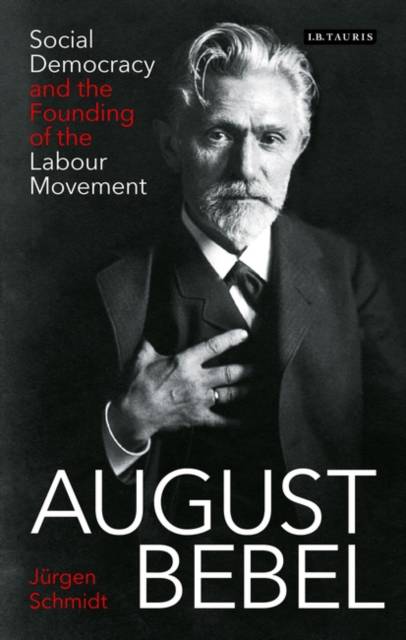
- Afhalen na 1 uur in een winkel met voorraad
- Gratis thuislevering in België vanaf € 30
- Ruim aanbod met 7 miljoen producten
- Afhalen na 1 uur in een winkel met voorraad
- Gratis thuislevering in België vanaf € 30
- Ruim aanbod met 7 miljoen producten
Zoeken
€ 271,45
+ 542 punten
Uitvoering
Omschrijving
August Bebel (1840-1913) was one of the towering figures of late nineteenth century European socialism and the leading figure of the German labour movement from the 1860s until his death in 1913. Born into a modest family, and a half-orphan from the age of four, his advancement to a pivotal role in the politics of Imperial Germany mirrored the success of German social democracy in this period. Bebel was not only the founder and first leader of the Social Democratic Workers Party of Germany (SDAP), a political movement that became the largest socialist party in nineteenth-century Europe, but he was also a powerful orator and leading member of the German parliament. He was described by contemporaries as the 'king of the German workers' and the 'shadow emperor' of Germany. In this biography, Jürgen Schmidt situates Bebel's life and career in the political, social and cultural history of modern Europe. He also provides an overview of the growth of the labour movement and working class political activism in late-nineteenth century Germany. This is an essential biography of one of Germany's most influential and unique politicians, living at a time of great political, social and industrial change in Europe.
Specificaties
Betrokkenen
- Auteur(s):
- Uitgeverij:
Inhoud
- Aantal bladzijden:
- 240
- Taal:
- Engels
- Reeks:
Eigenschappen
- Productcode (EAN):
- 9781788314459
- Verschijningsdatum:
- 21/02/2019
- Uitvoering:
- Hardcover
- Formaat:
- Genaaid
- Afmetingen:
- 142 mm x 218 mm
- Gewicht:
- 476 g

Alleen bij Standaard Boekhandel
+ 542 punten op je klantenkaart van Standaard Boekhandel
Beoordelingen
We publiceren alleen reviews die voldoen aan de voorwaarden voor reviews. Bekijk onze voorwaarden voor reviews.











